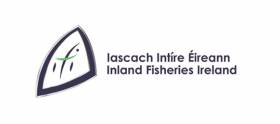Displaying items by tag: River Allow
5,000 Fish Lost in Major Fish Kill on Co Cork River
Inland Fisheries Ireland (IFI) says it is continuing to investigate a major fish kill in Co Cork in which at least 5,000 fish have died.
The pollution incident occurred on the River Allow, a tributary of the Munster Blackwater catchment at Freemount in the north of the county.
The incident occurred in a Special Area of Conservation, and the location is a noted spawning habitat.
Species of fish discovered dead include juvenile Atlantic salmon, brown trout, lamprey, eel, stone loach, roach and dace.
The river supports a population of freshwater pearl mussel, as well as being an abundant salmon and trout habitat.
Fisheries officers are still attempting to determine the scale of the kill, with fish mortalities observed up to 4km downstream of the source location.
IFI staff have been on site again on Monday (10 June) to investigate the pollution event, and assess the extent of the impact on the local environment.
Water samples have been taken from the river to gather evidence of the discharge, and source point of contamination, to advance any potential prosecution.
North Cork Creameries Co-Op Pleads Guilty To Polluting Allow River In Kanturk
North Cork Creameries Co-operative Ltd pleaded guilty on two charges in relation to a pollution incident on the Allow River in Co Cork last year at a sitting of Mallow District Court on Tuesday 17 September.
The charges followed an investigation by Inland Fisheries Ireland (IFI) in relation to a milk spillage into the river at Kanturk during August 2018.
The court heard that the incident occurred during a tanker loading process at the company’s production facility in Kanturk, which then discharged to the river.
Judge Brian Sheridan granted probation after hearing evidence that the defendant company had made a significant investment to upgrade their facilities in recent years and that a conviction would have a detrimental effect on the company’s wellbeing.
The court awarded €2,654 for costs and expenses to IFI and ordered the co-op to make a payment of €7,500 to the local angling club.
North Cork Creameries Co-operative was previously prosecuted by IFI in the Circuit Court in 2012 for similar offences, and it also received the benefit of the Probation Act in the District Court in 2018 following a prosecution by Cork County Council under the Local Government (Water Pollution) Act.
Commenting on the case, IFI senior fisheries environmental officer Andrew Gillespie said: “Protection of fish stocks is vital to maintaining an extremely valuable natural resource for the benefit of local and tourist anglers alike.
“The River Allow and its tributaries are a prized recreational angling resource with much of the catchment soon to benefit from the locally managed and Government-funded Duhallow Farming for Blue Dot Catchments project.
“The project aims to improve the river water quality and biodiversity via the implementation of beneficial measures by farmers and landowners.”
























































